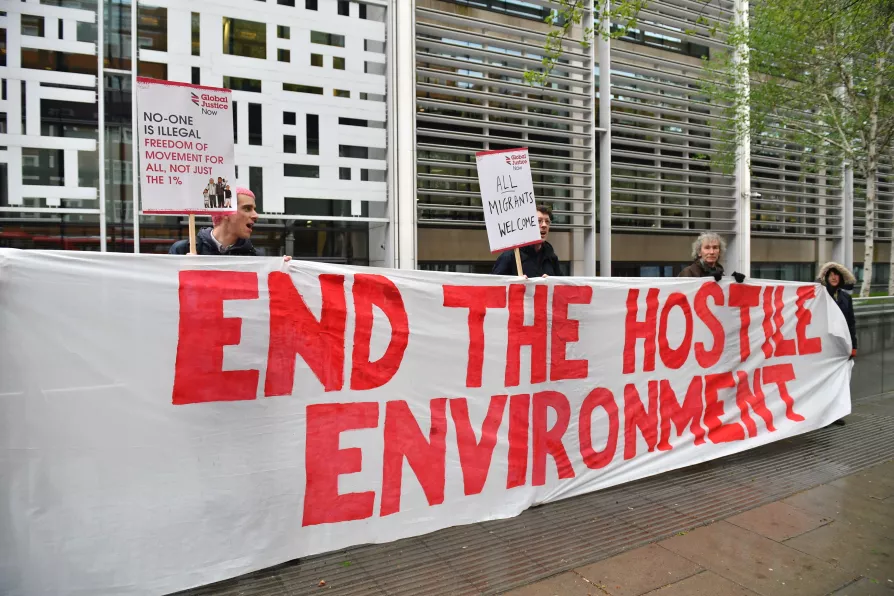ROGER McKENZIE looks at how US doublespeak on the ‘war on drugs’ is used to camouflage its intended grab for of Latin America’s natural resources

 Demonstrators protest against the hostile environment immigration policy outside the Home Office in April 2018
Demonstrators protest against the hostile environment immigration policy outside the Home Office in April 2018
THIS pamphlet from the Communist Party’s Anti-Racism Anti Fascism Commission is a bold and timely intervention in the toxic debate on migration, Brexit, populism and the steady march of the alt-right in the wake of the capitalist crisis and crash of 2007-8.
Packed with statistical information, historical analysis, topical commentary and political strategy it attempts to formulate an internationalist position that is both anti-racist and anti-fascist and capable of winning support within the working class and wider society.
This is a tall order. It has to grapple with the key conundrum of progressive and left politics today: how to integrate economic and historical analysis of class with the cultural elements of ideology (nationalism and identity) to produce a political approach capable of mobilising the support of the 99 per cent?

Starmer sabotaged Labour with his second referendum campaign, mobilising a liberal backlash that sincerely felt progressive ideals were at stake — but the EU was then and is now an entity Britain should have nothing to do with, explains NICK WRIGHT

As Starmer flies to Albania seeking deportation camps while praising Giorgia Meloni, KEVIN OVENDEN warns that without massive campaigns rejecting this new overt government xenophobia, Britain faces a soaring hard right and emboldened fascist thugs on the streets

The left must avoid shouting ‘racist’ and explain that the socialist alternative would benefit all











